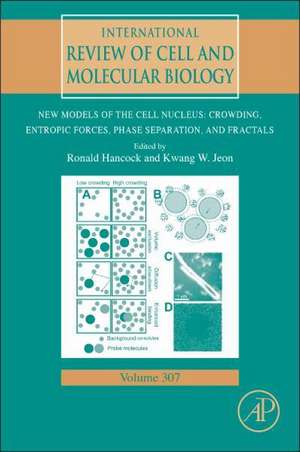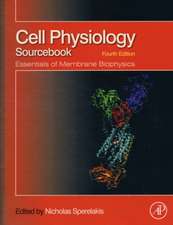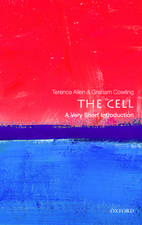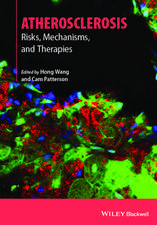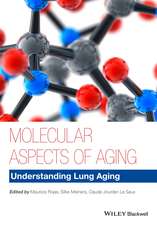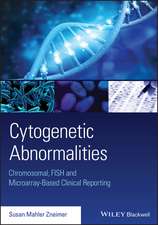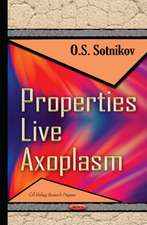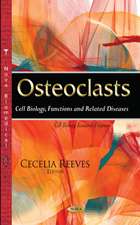New Models of the Cell Nucleus: Crowding, Entropic Forces, Phase Separation, and Fractals: International Review of Cell and Molecular Biology, cartea 307
Editat de Ronald Hancock, Kwang W. Jeonen Limba Engleză Hardback – 25 feb 2014
Ideas from the fields of biophysics, physical chemistry, of polymer and colloid, and soft matter science have helped clarify the structure and functions of the cell nucleus. The development of powerful methods for modeling conformations and interactions of macromolecules has also contributed. The book aims to encourage cell and molecular biologists to become more familiar with and understand these new concepts and methods, and the crucial contributions they are making to our perception of the nucleus.
- This is the first volume to present a comprehensive review of New Models of the Cell Nucleus
Preț: 964.78 lei
Preț vechi: 1414.13 lei
-32% Nou
Puncte Express: 1447
Preț estimativ în valută:
184.64€ • 192.05$ • 152.43£
184.64€ • 192.05$ • 152.43£
Carte tipărită la comandă
Livrare economică 08-22 aprilie
Preluare comenzi: 021 569.72.76
Specificații
ISBN-13: 9780128000465
ISBN-10: 0128000465
Pagini: 512
Dimensiuni: 152 x 229 x 29 mm
Greutate: 0.94 kg
Ediția:New.
Editura: ELSEVIER SCIENCE
Seria International Review of Cell and Molecular Biology
ISBN-10: 0128000465
Pagini: 512
Dimensiuni: 152 x 229 x 29 mm
Greutate: 0.94 kg
Ediția:New.
Editura: ELSEVIER SCIENCE
Seria International Review of Cell and Molecular Biology
Public țintă
Cell biologists, molecular biologists, developmental biologists, physiologists (organ level), biomedical scientists, biochemists studying cell-cell interactions, cell variation and evolutionCuprins
- The Nuclear Physique
Thoru Pederson - The Crowded Nucleus
Ronald Hancock - Crowding in Polymer-Nanoparticle Mixtures
Alan R. Denton - Crowding-Induced Formation and Structural Alteration of Nuclear Compartments: Insights from Computer Simulations
Eun Jin Cho, Igal Szleifer and Jun Soo Kim - Phase Separation as a Possible Means of Nuclear Compartmentalization
William M. Aumiller, Jr, Bradley W. Davis and Christine D. Keating - Formation of Multi-Protein Assemblies in the Nucleus: The Spindle Assembly Checkpoint (SAC)
Victor M. Bolanos-Garcia - Characteristic Behavior of Crowding Macromolecules Confined in Cell-Sized Droplets
Miho Yanagisawa, Takahiro Sakaue and Kenichi Yoshikawa - Non-Canonical Structures and their Thermodynamics of DNA and RNA Under Molecular Crowding: Beyond the Watson-Crick Double Helix
Naoki Sugimoto - Computational Models of Large-Scale Genome Architecture
Angelo Rosa and Christophe Zimmer - How Chromatin Looping and Nuclear Envelope Attachment Affect Genome Organization in Eukaryotic Cell Nuclei
Hansjoerg Jerabek and Dieter W. Heermann - Crowding, Diffusion, and Biochemical Reactions
Matthias Weiss - Importance of Crowding in Signaling, Genetic, and Metabolic Networks
Pieter Rein ten Wolde and Andrew Mugler - Relevance and Limitations of Crowding, Fractal, and Polymer Models to Describe Nuclear Architecture
Sébastien Huet, Christophe Lavelle, Hubert Ranchon, Pascal Carrivain, Jean-Marc Victor and Aurélien Bancaud
